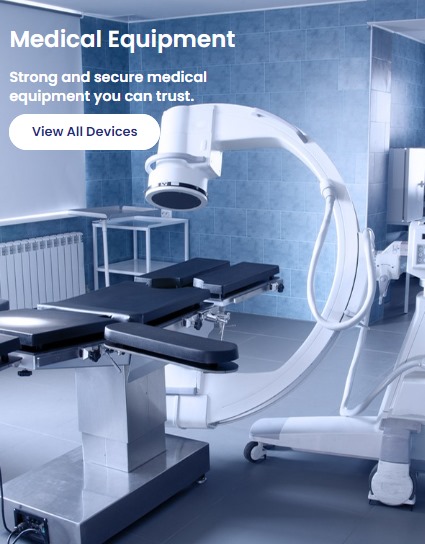
In today’s healthcare landscape, a diverse array of essential products plays a pivotal role in promoting, maintaining, and restoring health. These products, ranging from pharmaceuticals to medical devices and personal protective equipment (PPE), are integral to the functioning of healthcare systems worldwide. Their impact on patient care is profound Canadian Healthcare Distributors, enabling more effective diagnosis, treatment, and management of a wide variety of health conditions. This article explores the range of essential healthcare products and their significant impact on both individual patients and the broader healthcare system.
The range of Essential Healthcare Products
Pharmaceuticals: Pharmaceuticals are among the most fundamental healthcare products, used to treat, manage, and prevent a myriad of health conditions. This category includes prescription medications, over-the-counter drugs, vaccines, and biopharmaceuticals. Pharmaceuticals have transformed healthcare by offering treatments for conditions that were once considered untreatable, such as HIV/AIDS, cancer, and chronic diseases like diabetes. Vaccines, in particular, have had a profound impact on public health, virtually eradicating diseases like polio and significantly reducing the incidence of others like measles and influenza.
Medical Devices: Medical devices are essential tools that facilitate the diagnosis, treatment, and monitoring of patients. They range from simple instruments like thermometers and blood pressure cuffs to complex machinery like MRI scanners and robotic surgical systems. Medical devices are crucial in enabling accurate diagnoses and precise treatments, often serving as the backbone of modern medical procedures. For example, diagnostic imaging devices like CT scanners and X-ray machines allow healthcare providers to visualize internal organs and structures, aiding in the early detection and treatment of diseases.
Personal Protective Equipment (PPE): The COVID-19 pandemic brought the importance of PPE to the forefront of global consciousness. PPE includes items such as masks, gloves, gowns, and face shields, which are designed to protect healthcare workers and patients from the transmission of infectious diseases. The widespread use of PPE has been critical in controlling the spread of the virus in healthcare settings and beyond. Beyond the pandemic, PPE continues to be a staple in healthcare environments, safeguarding against a wide range of pathogens and contaminants.
Diagnostic Tools and equipment: Diagnostic tools and equipment are essential in identifying health conditions accurately and promptly. These tools range from basic items like stethoscopes and blood glucose monitors to advanced technologies like genetic testing kits and lab-on-a-chip devices. Accurate diagnostics are the first step in effective treatment, enabling healthcare providers to make informed decisions about patient care. Early and accurate diagnosis can significantly improve outcomes, particularly in conditions like cancer, where early detection is often critical to successful treatment.
Home Healthcare Products: As healthcare increasingly moves toward patient-centered care, home healthcare products have become essential. These products include items like home dialysis machines, portable oxygen concentrators, blood glucose monitors, and mobility aids such as wheelchairs and walkers. Home healthcare products empower patients to manage chronic conditions in the comfort of their own homes, improving quality of life and reducing the need for frequent hospital visits. This shift is particularly beneficial for elderly patients and those with mobility issues, as it allows them to maintain independence while receiving the care they need.
The Impact of Essential Healthcare Products
The impact of essential healthcare products on patient care and the broader healthcare system is immense. These products have revolutionized the way healthcare is delivered, improving outcomes, enhancing efficiency, and expanding access to care.
Improved Patient Outcomes: The availability of essential healthcare products has led to significant improvements in patient outcomes. Pharmaceuticals have enabled the treatment of diseases that were once fatal, while vaccines have prevented the spread of infectious diseases. Medical devices have made it possible to perform complex surgeries with greater precision, reducing recovery times and improving survival rates. The impact of these products on life expectancy and quality of life is undeniable.
Enhanced Efficiency in Healthcare Delivery: Essential healthcare products contribute to the efficiency of healthcare delivery by streamlining processes and reducing the need for invasive procedures. For example, diagnostic tools allow for quicker and more accurate diagnoses, leading to more timely treatment. Medical devices like insulin pumps and pacemakers enable continuous monitoring and management of chronic conditions, reducing the need for frequent doctor visits and hospitalizations. This efficiency not only benefits patients but also alleviates pressure on healthcare systems, particularly in times of crisis.
Increased Access to Healthcare: Home healthcare products and digital health technologies have significantly increased access to healthcare, particularly for those in remote or underserved areas. Telemedicine platforms, for example, allow patients to consult with healthcare providers from the comfort of their homes, reducing the need for travel and making healthcare more accessible. Similarly, home healthcare products enable patients to manage their conditions without frequent trips to the hospital, which is particularly important in rural or remote areas where healthcare facilities may be scarce.
Conclusion
Essential healthcare products are at the heart of modern medicine, playing a critical role in the diagnosis, treatment, and management of health conditions. Their range is vast, encompassing everything from pharmaceuticals and medical devices to PPE and home healthcare products. The impact of these products on patient care and the healthcare system is profound, leading to improved outcomes, greater efficiency, and increased access to care. As healthcare continues to evolve, the importance of these products will only grow, underscoring their role in ensuring the health and well-being of individuals and communities worldwide.